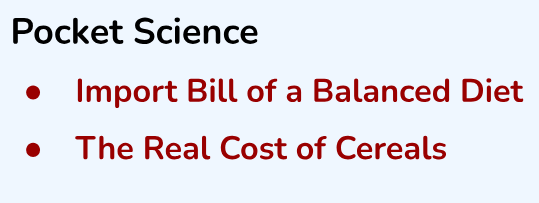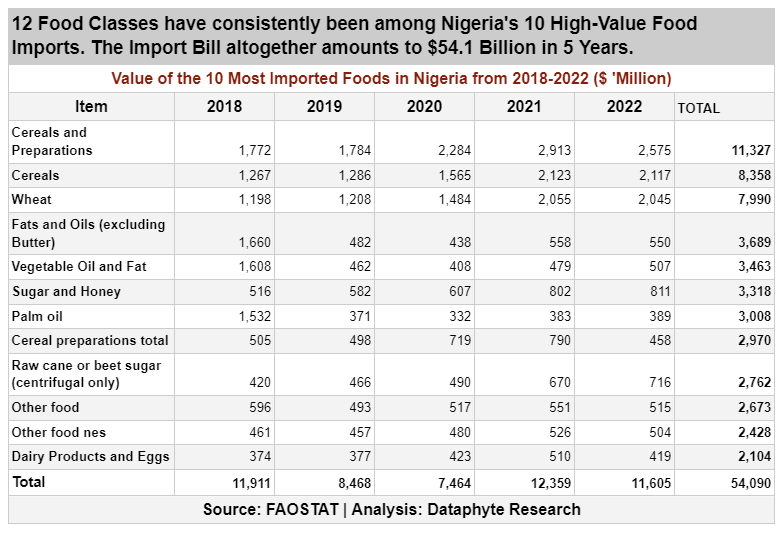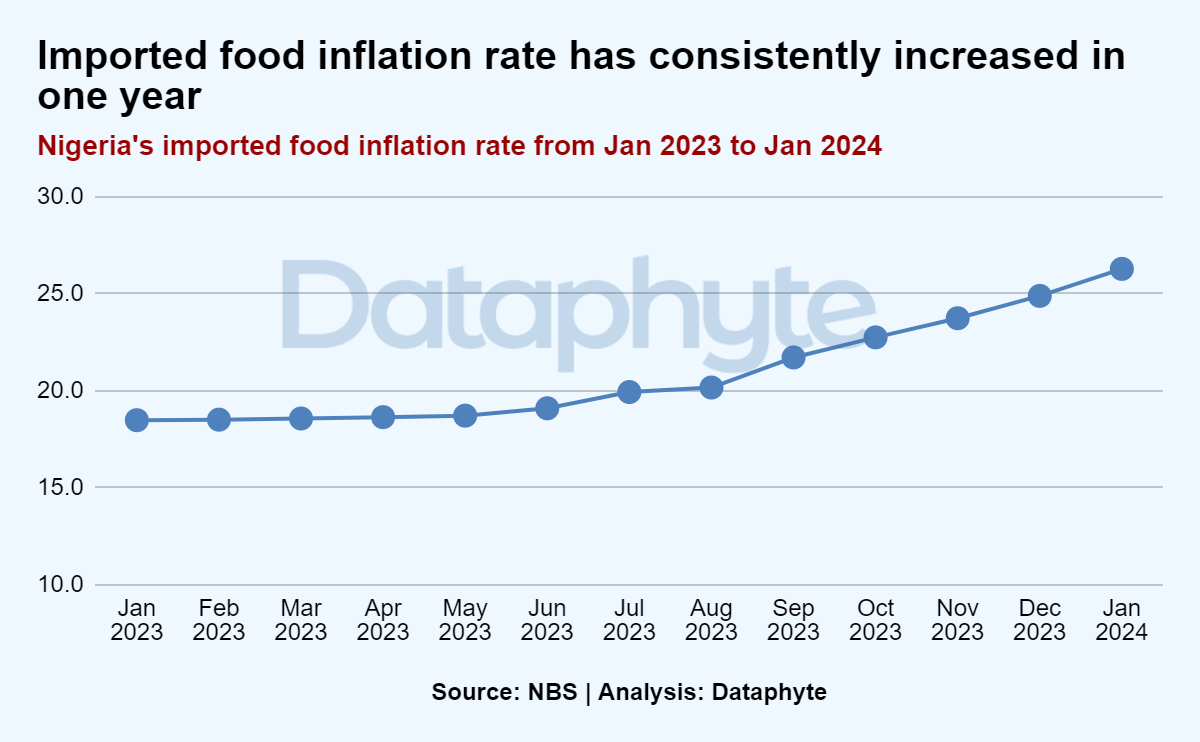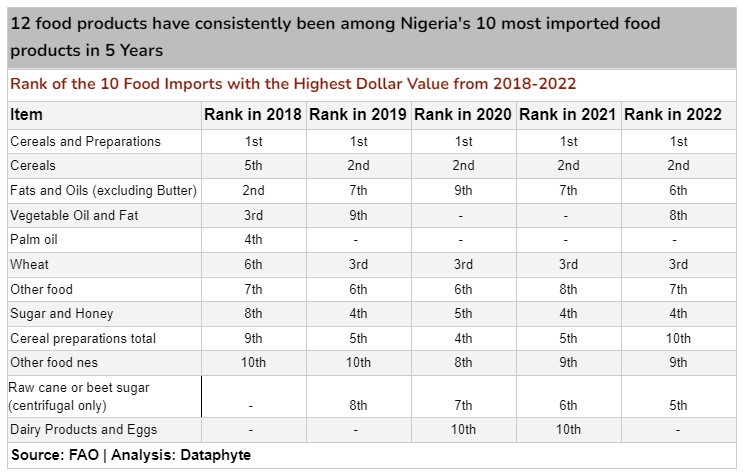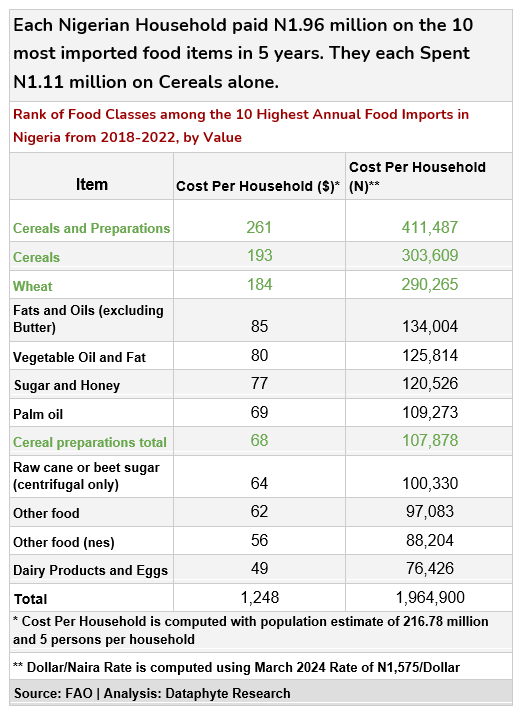Import Bill of a Balanced Diet
The cost of imported food has been steadily rising in Nigeria, with a 7.8 percentage points increase from 18.5% in January 2023 to 26.29% in January 2024 compared to the previous year.
It’s interesting that these imports consistently comprise Carbohydrates, Protein, and Fats and Oil, pointing to Nigeria’s dependence on foreign countries’ support for its balanced diet.
The fact that a bulk of these food items are imported over consecutive years indicates that local production is insufficient to meet the people’s demand for these items.
With the rising exchange rate, the cost of imported food items might still be on its way up in the nearest future.
The imported food inflation rate has consistently increased over the past year, according to the National Bureau of Statistics (NBS) CPI data.
This situation places a demand on Nigerian consumers to exercise their thinking and innovation muscles on what local food items can serve as substitutes for imported food items or on how to reduce the consumption of these food items where there are no close locally produced substitutes.
Over the past five years, 12 food classes consistently ranked in the top ten most imported items. This recurrent trend suggests a heavy reliance on imports to meet consumption needs, especially for staple items like cereals and wheat.
The Real Cost of Cereals
On average, each Nigerian household (comprising 5 persons) spent N1.96 million (N1,964,900 or $1,248 at N1,575 per dollar) in five years to purchase the 10 highest valued food imports.
Interestingly, 57% of this amount is spent on imported Cereals, chiefly, Rice and Wheat, among others. Each household spent N1.11 million on cereals alone between 2018 and 2022.
The current situation is worsened by the increasing inflation rate of imported food, highlighting the economic impact on the nation and its consumers.
While the government puts its acts together, a strategic individual response to the high per capita food import bill coupled with the rising import food inflation would involve exploring substitutes for these imported food items, which are also key food items.
This includes identifying alternative options for cereals, sugar and honey, dairy products, fats and vegetable oils, cattle products and other top imported food items.
Locally produced rice, sorghum, and millet are cost-saving substitutes for imported cereals.
Sugar and honey, including raw cane and beet sugar, are, all forms of sugar. Consumers may explore reducing their intake of these, especially, sugars.
For Dairy Products, plant-based alternatives like soy milk may reduce reliance on imports.
However, some of these plant-based products are also on the expensive side and are imported too. Reducing the consumption of these foreign foods might be the best option for consumers.
Exploring locally produced alternatives like groundnut oil and soybean oil can reduce dependence on imported vegetable oil and palm oil.
At the individual level, these measures may reduce dependence on imported food items, and save some badly needed money.
Yet, at the public level, strengthening domestic production is crucial to mitigate the impact of rising import inflation on both the economy and consumers in Nigeria.
This edition of Pocket Science was written by Khadijat Kareem who likes oats for breakfast and edited by Oluseyi Olufemi who dislikes oats and other cereals except Rice.
Thanks for reading. See you next week.




